Galápagos


The GalápaGo! Research based Learning Abroad Program has three main parts:
- A spring-semester preparatory course - BIOL 4302 GalápaGo! Research Based Learning Abroad
- A one-month abroad experience in the Galápagos with host families and global scientists
- A post-trip event, Galápafest!, where students share personal and professional reflections.
The program is open to all majors, with scholarships available.
This course is about preparing for a required study-abroad trip to the Galápagos Islands in the summer of 2026. There, students will spend approximately one month assisting faculty with ongoing research projects. To prepare for this immersive research experience, we will read and discuss both the theoretical and experimental background for the projects during the spring semester. In addition, we will use the Galápagos Islands as a model to explore several topics in geology, evolutionary biology, history and conservation. The course will include integrative projects, readings, student-led discussions, films and lectures.
Read more about in-depth about the trip HERE
TRIP DATES: May 29 - June 23, 2026
GalápaGo! Research
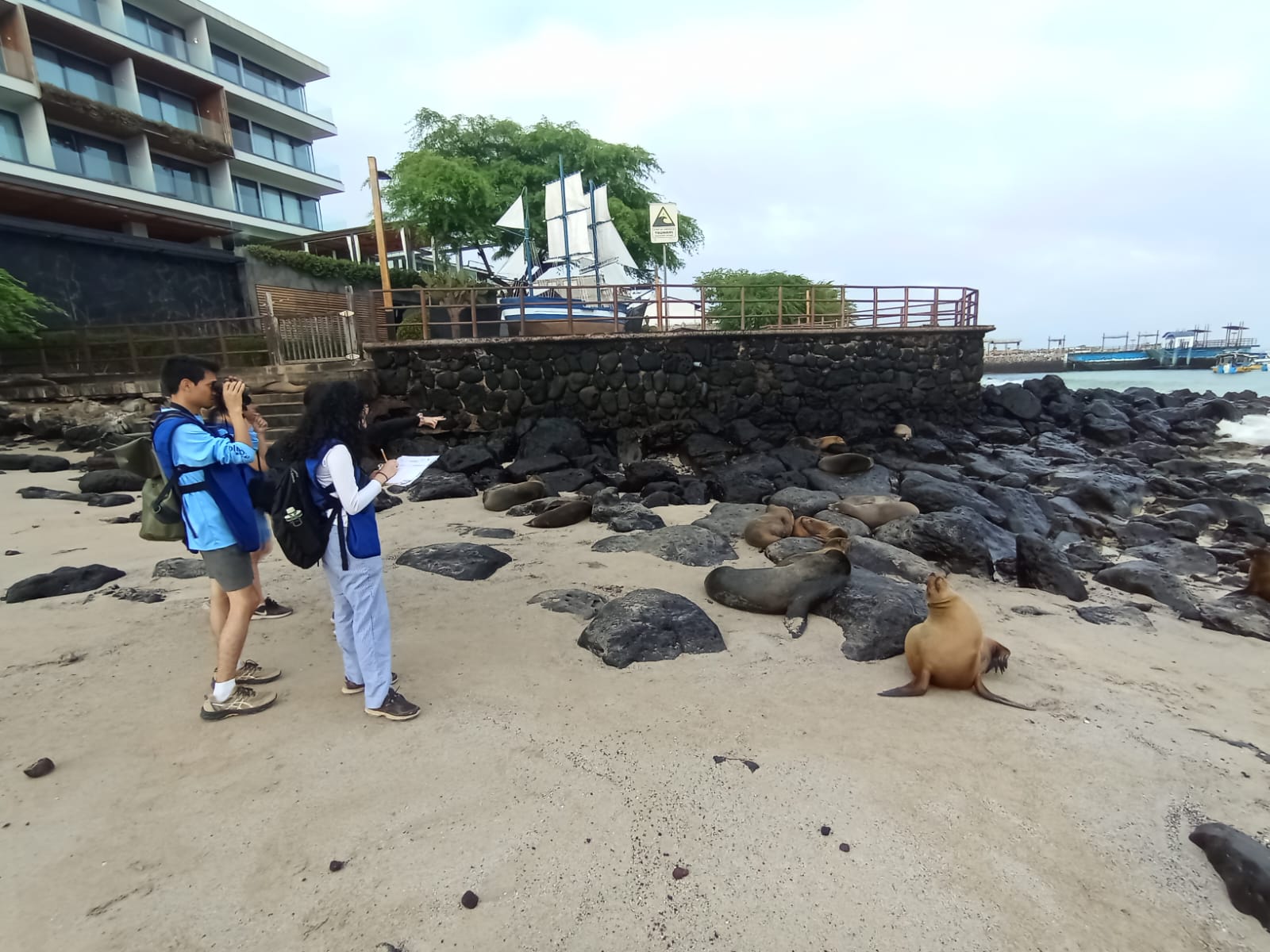
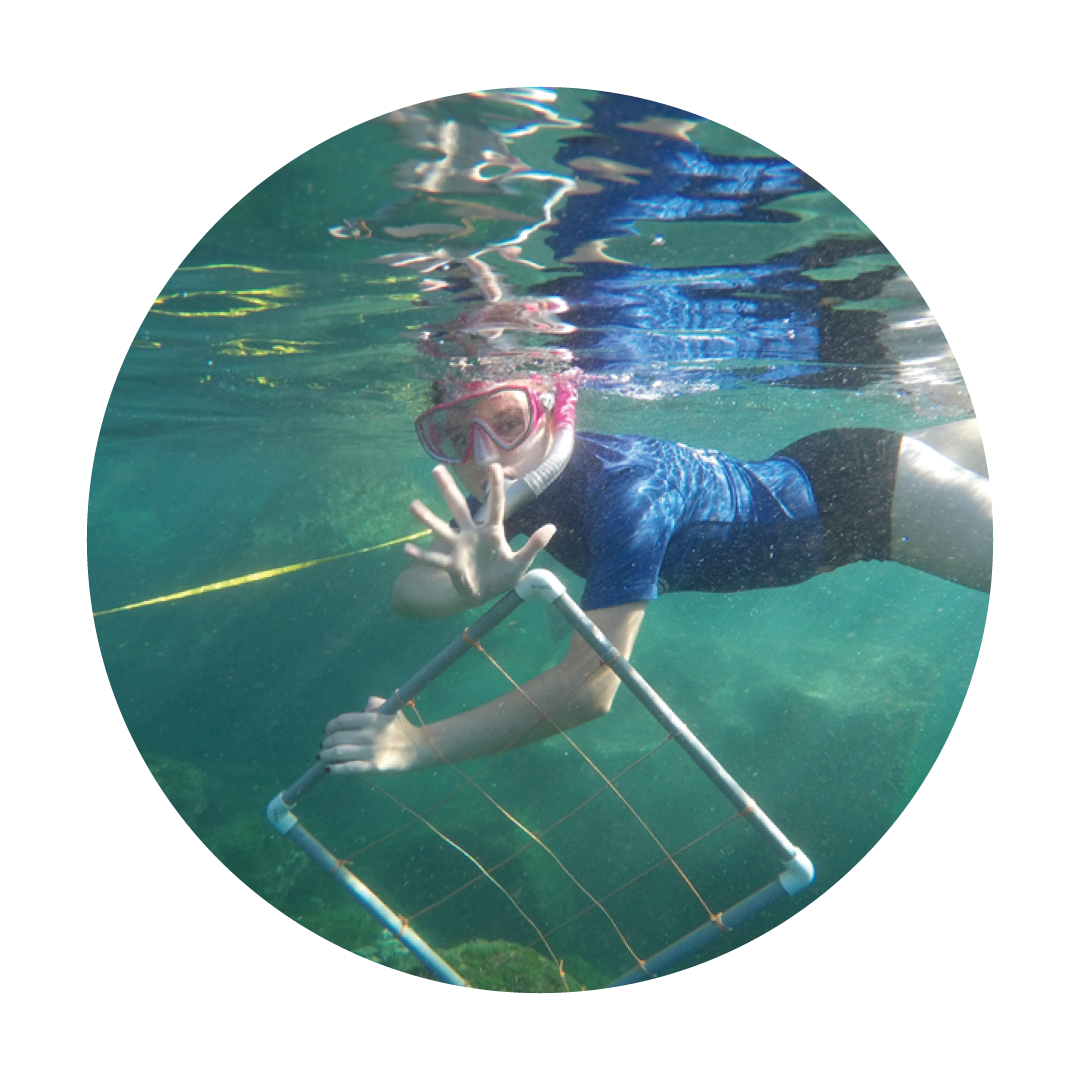
Research
The trip is organized in partnership with the Universidad San Francisco de Quito. USFQ runs the Galápagos Science Center, a research station in Playa Mann on San Cristóbal Island. At the research station, and through the adjacent GAIAS program, you will interact with faculty from USFQ and around the world working on projects in the islands.

Cultural Experience
Students will stay with local families who have been thoroughly vetted and have hosted participants in previous years. Breakfast and dinner will be provided daily by the host family. While fluency in Spanish is not required for the trip, having some proficiency in the language will be helpful when staying with your host family.
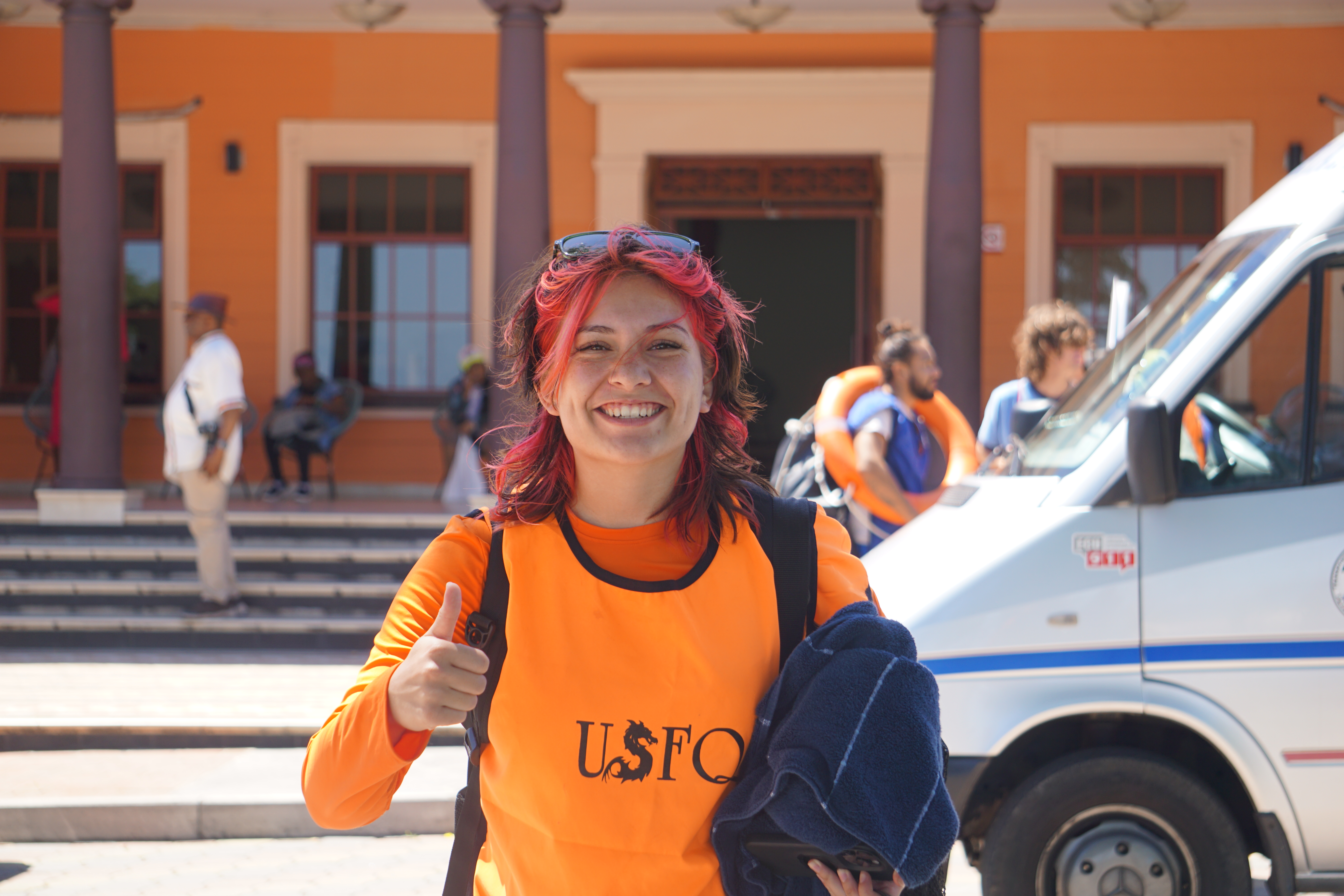
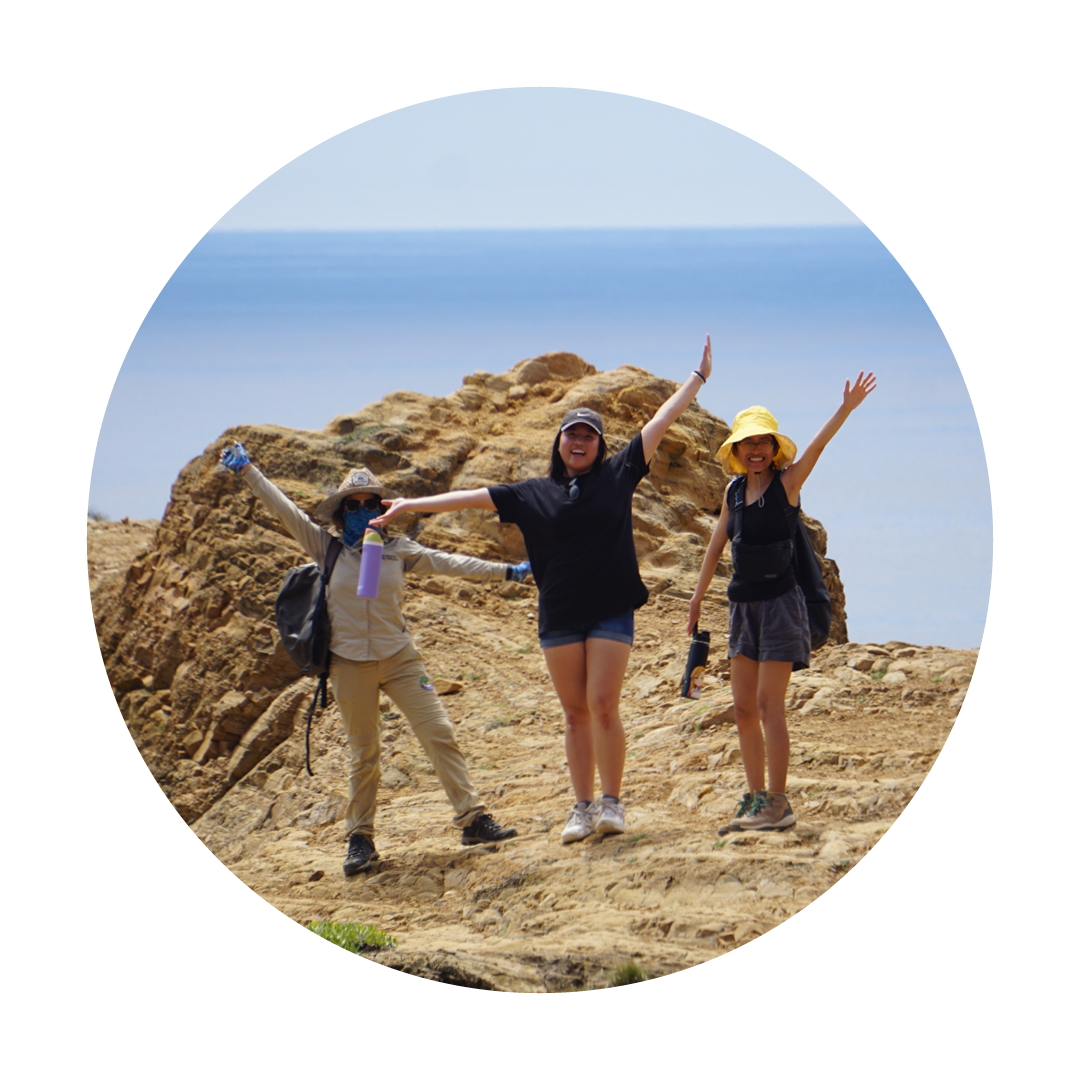
Excursions
Each excursion in the Galápagos brings you closer to the islands’ unique wildlife and breathtaking beauty. Some excursions include day trip to Quito, Kicker Rock for snorkeling, Punta Pitt for hiking and snorkeling, Cerro Colorado Tortoise Reserve, snorkeling at Puerto Chino and hiking at El Junco Lagoon.
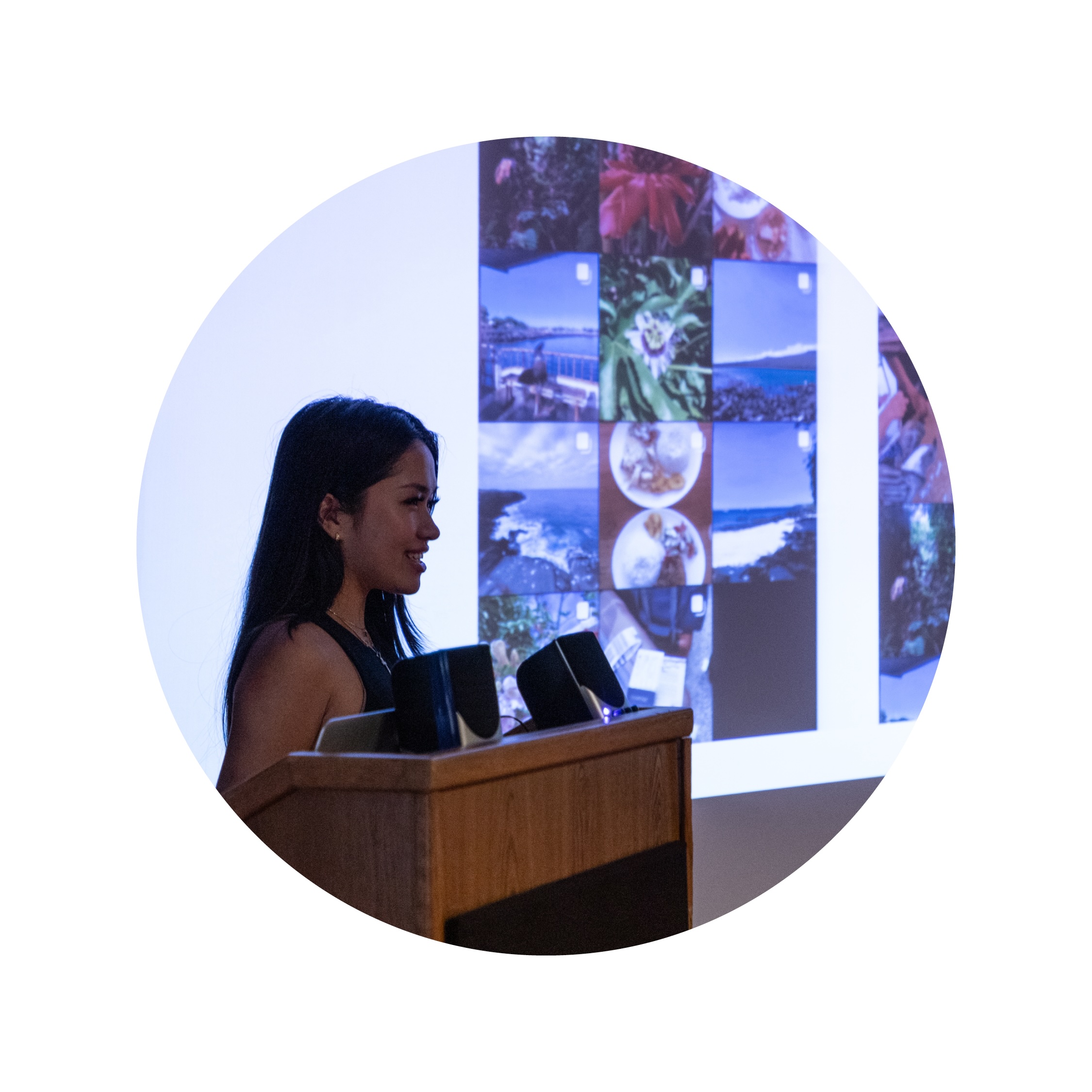
Galápafest!
About a month after their trip, students gathered for Galápafest!, an annual event where students present personal narrative projects to fellow classmates, professors, UH Learning Abroad staff and their families.

I was an ocean Teeming with life
Vast in beauty, Inherently free
A tie between here and there
I kiss the shore before I go
I’ll be back
- Poem by Emma Bradstreet presented at Galápafest.
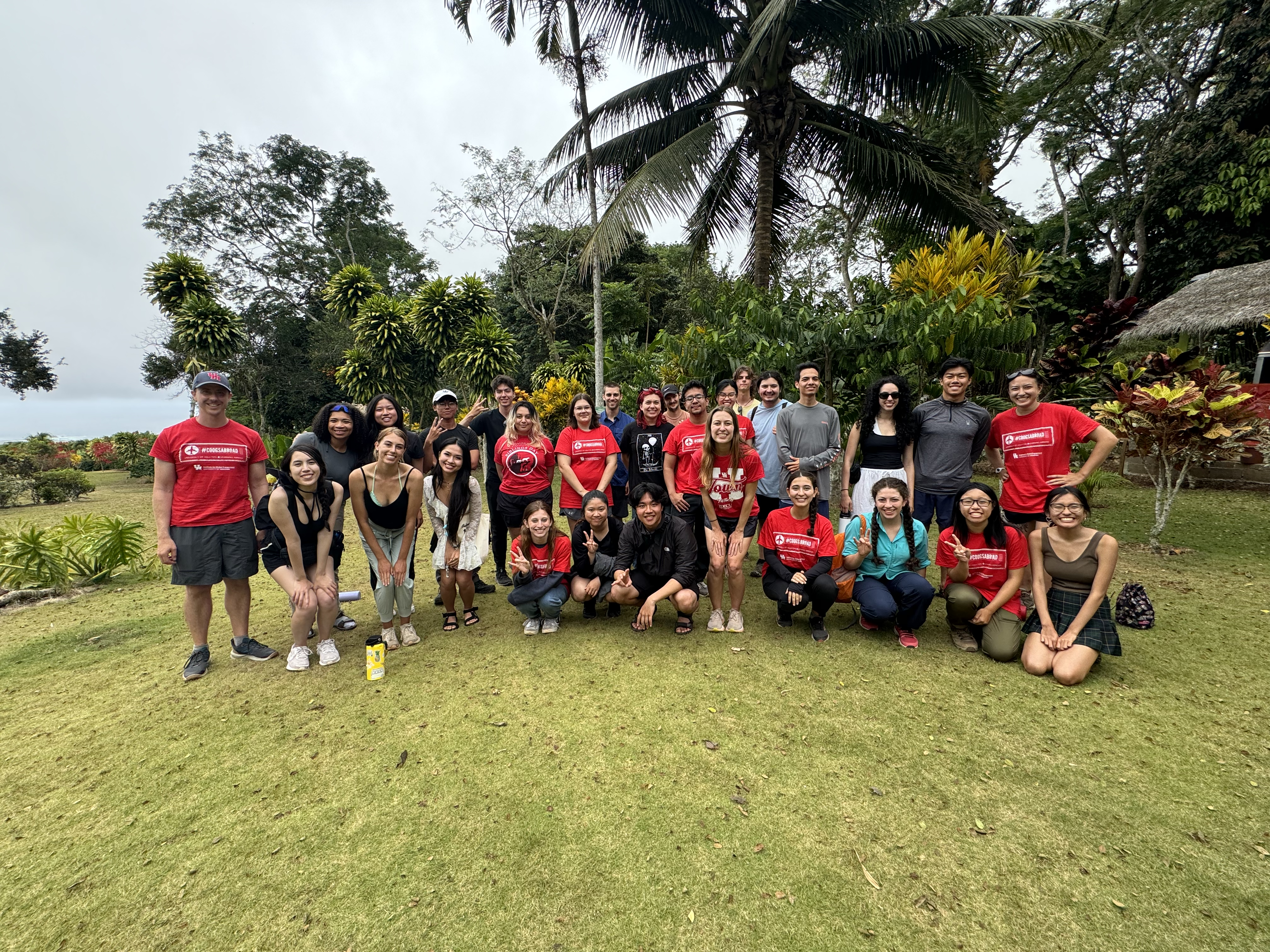
FAQs
If you are a US citizen, you will need a visa to travel to Equador.
Learn more at: https://travel.state.gov/content/travel/en/international-travel/International-Travel-Country-Information-Pages/Ecuador.html
- Fill out the online application
- Answer questions about yourself
- Enroll in BIOL 4302 GalapaGo! Research-Based Learning Abroad Program for Spring 2026
- Take a swim test
According to the U.S Department of State Travel Advisory, Ecuador is at a Level 2.
Learn more at: https://travel.state.gov/content/travel/en/traveladvisories/traveladvisories/ecuador-travel-advisory.html